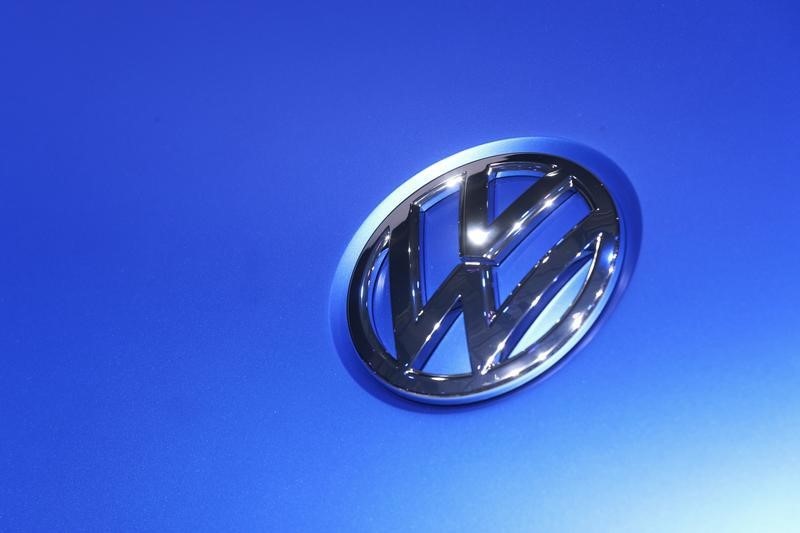By Paul Sandle
LONDON (Reuters) - The European reporting season is not turning into the rout investors feared as many of the largest companies managed to navigate weak demand through cost cuts and innovation to deliver earnings in line with or ahead of downbeat forecasts.
Of the fifth of companies in the European Stoxx 600 index that have reported so far, 60 percent have beaten earnings per share (EPS) expectations, according to Thomson Reuters research, compared with just 48 percent beat in a typical quarter.
Cyclical stocks -- whose performance is closely linked to the economic cycle -- have delivered better results than forecast after analysts downgraded their expectations in line with growing fears over the state of the economy last month.
"We are not by any means saying we are suddenly seeing a very strong growth environment for cyclicals but it's just that perhaps the pessimism in estimates going into the number was a little bit too much," said Dan Ison, head of pan-European equities at Threadneedle Investments.
Defensive stocks -- companies like food and utilities whose earnings fluctuate less with the economic cycle -- have underperformed, particular those relying on emerging economies.
Companies more dependent on developed economies -- industrials and auto makers like Volkswagen (DE:VOWG_p) -- are defying the most gloomy predictions extrapolated from recent economic data, helped a weaker euro making exports more competitive and a recovering European car market.
The pan-European FTSEEurofirst 300 (FTEU3) touched a 13-month low on Oct. 16 on fears for the global economy and of deflation in the euro zone.
But Barclays said investors should feel "cautiously optimistic about the Q3 season".
Since the start of the reporting season, Barclays said shares were outperforming in cyclical sectors like autos, capital goods, materials and oils, and were failing to keep up in consumer staples and healthcare.
"This suggests investors have seen enough good news from cyclicals to tempt them back," it said.
The proportion of companies beating expectations for EPS was at three-and-a-half-year highs, the bank noted, and the median EPS beat -- the amount the earnings exceeded expectations -- was 3 percent, higher than at any point since early 2012.
In the negative column are consumer goods companies, such as British American Tobacco (L:BATS) and Unilever (L:ULVR), feeling the pinch from slowing demand in emerging markets like China.
INNOVATION
Threadneedle's Ison said defensive stocks that had performed well in recent months had not delivered the best results.
"It's not universal but where we have seen some stronger numbers, it's typically in the more cyclical areas," he said.
For example, better-than-expected earnings for drugmaker Bayer (DE:BAYGn) came more from its materials science unit -- which supplies high-tech polymers -- and innovation in crop science products than from its pharmaceuticals, he said.
Ben Ritchie, senior investment manager at Aberdeen Asset Management, said what was happening in the real world was perhaps a bit better than economic data had indicated.
Last month, weak data, especially from Germany, were extrapolated into expectations for corporate results, he said. "There's a link but it's not necessarily one-to-one." Investors had "sold first and asked questions later."
Will James, European investment director at Standard Life Investments, said telecoms companies were reporting better-than-expected numbers, as investment in faster 4G services started to deliver.
Data from Thomson Reuters I/B/E/S (Institutional Brokers' Estimate System) show the telecom services sector is expected to have the highest revenue growth rate in the third quarter, of 13.7 percent, although the bottom line remains weak.
"Expectations have been sufficiently lowered for telcos to start showing some top line recovery," James said.
Oil and gas is another sector where investors took one look at the macro data -- the low oil price -- and feared the worse, Aberdeen's Ritchie said. But ENI (MI:ENI), Royal Dutch Shell (L:RDSa) , Total (PA:TOTF) and BP (L:BP) all beat expectations.
"We've seen better performance than expected in the downstream, which a lot of people had forgotten about," Ritchie said. Investors had not paid attention to elements under firms' control, like operating costs and capital expenditure, he said.
"It's not easy out there," Ritchie said. "I'm sure next quarter will be even tougher, when we are averaging $85-90 oil, but actually they are doing the right things and not doing a bad job."
(Editing by Robin Pomeroy) 2014-11-03T174827Z_1_LYNXMPEAA20QY_RTROPTP_1_AU
By Paul Sandle
LONDON (Reuters) - The European reporting season is not turning into the rout investors feared as many of the largest companies managed to navigate weak demand through cost cuts and innovation to deliver earnings in line with or ahead of downbeat forecasts.
Of the fifth of companies in the European Stoxx 600 index that have reported so far, 60 percent have beaten earnings per share (EPS) expectations, according to Thomson Reuters research, compared with just 48 percent beat in a typical quarter.
Cyclical stocks -- whose performance is closely linked to the economic cycle -- have delivered better results than forecast after analysts downgraded their expectations in line with growing fears over the state of the economy last month.
"We are not by any means saying we are suddenly seeing a very strong growth environment for cyclicals but it's just that perhaps the pessimism in estimates going into the number was a little bit too much," said Dan Ison, head of pan-European equities at Threadneedle Investments.
Defensive stocks -- companies like food and utilities whose earnings fluctuate less with the economic cycle -- have underperformed, particular those relying on emerging economies.
Companies more dependent on developed economies -- industrials and auto makers like Volkswagen (DE:VOWG_p) -- are defying the most gloomy predictions extrapolated from recent economic data, helped a weaker euro making exports more competitive and a recovering European car market.
The pan-European FTSEEurofirst 300 (FTEU3) touched a 13-month low on Oct. 16 on fears for the global economy and of deflation in the euro zone.
But Barclays said investors should feel "cautiously optimistic about the Q3 season".
Since the start of the reporting season, Barclays said shares were outperforming in cyclical sectors like autos, capital goods, materials and oils, and were failing to keep up in consumer staples and healthcare.
"This suggests investors have seen enough good news from cyclicals to tempt them back," it said.
The proportion of companies beating expectations for EPS was at three-and-a-half-year highs, the bank noted, and the median EPS beat -- the amount the earnings exceeded expectations -- was 3 percent, higher than at any point since early 2012.
In the negative column are consumer goods companies, such as British American Tobacco (L:BATS) and Unilever (L:ULVR), feeling the pinch from slowing demand in emerging markets like China.
INNOVATION
Threadneedle's Ison said defensive stocks that had performed well in recent months had not delivered the best results.
"It's not universal but where we have seen some stronger numbers, it's typically in the more cyclical areas," he said.
For example, better-than-expected earnings for drugmaker Bayer (DE:BAYGn) came more from its materials science unit -- which supplies high-tech polymers -- and innovation in crop science products than from its pharmaceuticals, he said.
Ben Ritchie, senior investment manager at Aberdeen Asset Management, said what was happening in the real world was perhaps a bit better than economic data had indicated.
Last month, weak data, especially from Germany, were extrapolated into expectations for corporate results, he said. "There's a link but it's not necessarily one-to-one." Investors had "sold first and asked questions later."
Will James, European investment director at Standard Life Investments, said telecoms companies were reporting better-than-expected numbers, as investment in faster 4G services started to deliver.
Data from Thomson Reuters I/B/E/S (Institutional Brokers' Estimate System) show the telecom services sector is expected to have the highest revenue growth rate in the third quarter, of 13.7 percent, although the bottom line remains weak.
"Expectations have been sufficiently lowered for telcos to start showing some top line recovery," James said.
Oil and gas is another sector where investors took one look at the macro data -- the low oil price -- and feared the worse, Aberdeen's Ritchie said. But ENI (MI:ENI), Royal Dutch Shell (L:RDSa) , Total (PA:TOTF) and BP (L:BP) all beat expectations.
"We've seen better performance than expected in the downstream, which a lot of people had forgotten about," Ritchie said. Investors had not paid attention to elements under firms' control, like operating costs and capital expenditure, he said.

"It's not easy out there," Ritchie said. "I'm sure next quarter will be even tougher, when we are averaging $85-90 oil, but actually they are doing the right things and not doing a bad job."
(Editing by Robin Pomeroy)
